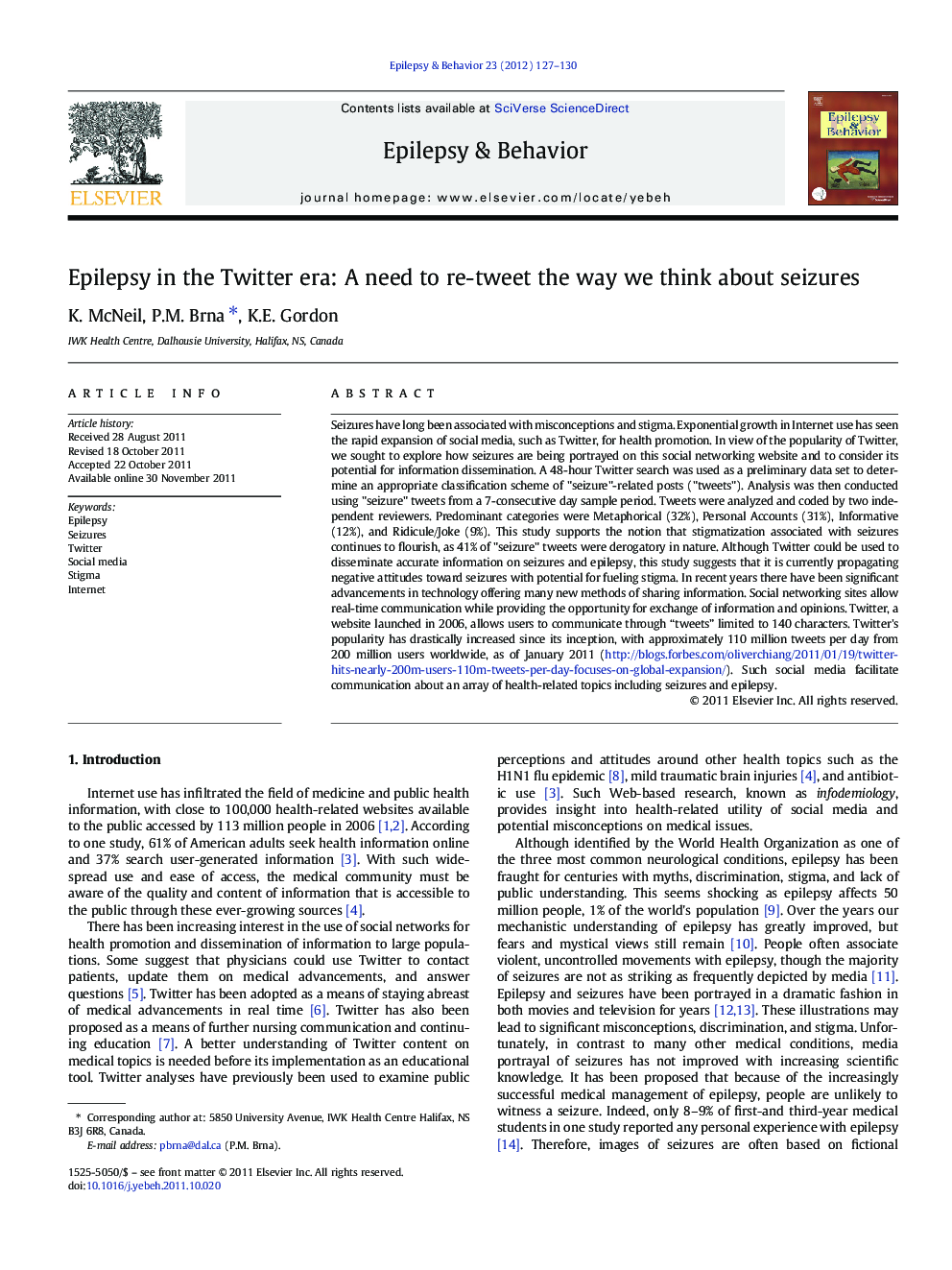| Article ID | Journal | Published Year | Pages | File Type |
|---|---|---|---|---|
| 3049848 | Epilepsy & Behavior | 2012 | 4 Pages |
Seizures have long been associated with misconceptions and stigma. Exponential growth in Internet use has seen the rapid expansion of social media, such as Twitter, for health promotion. In view of the popularity of Twitter, we sought to explore how seizures are being portrayed on this social networking website and to consider its potential for information dissemination. A 48-hour Twitter search was used as a preliminary data set to determine an appropriate classification scheme of "seizure"-related posts ("tweets"). Analysis was then conducted using "seizure" tweets from a 7-consecutive day sample period. Tweets were analyzed and coded by two independent reviewers. Predominant categories were Metaphorical (32%), Personal Accounts (31%), Informative (12%), and Ridicule/Joke (9%). This study supports the notion that stigmatization associated with seizures continues to flourish, as 41% of "seizure" tweets were derogatory in nature. Although Twitter could be used to disseminate accurate information on seizures and epilepsy, this study suggests that it is currently propagating negative attitudes toward seizures with potential for fueling stigma. In recent years there have been significant advancements in technology offering many new methods of sharing information. Social networking sites allow real-time communication while providing the opportunity for exchange of information and opinions. Twitter, a website launched in 2006, allows users to communicate through “tweets” limited to 140 characters. Twitter's popularity has drastically increased since its inception, with approximately 110 million tweets per day from 200 million users worldwide, as of January 2011 (http://blogs.forbes.com/oliverchiang/2011/01/19/twitter-hits-nearly-200m-users-110m-tweets-per-day-focuses-on-global-expansion/). Such social media facilitate communication about an array of health-related topics including seizures and epilepsy.
► The content of seizure-related comments on the popular social medium Twitter is examined. ► Metaphorical use of the term seizure and personal accounts about seizures were the most frequent Twitter posts. ► Negative and derogatory comments that perpetuate the stigma of epilepsy were frequently posted.
